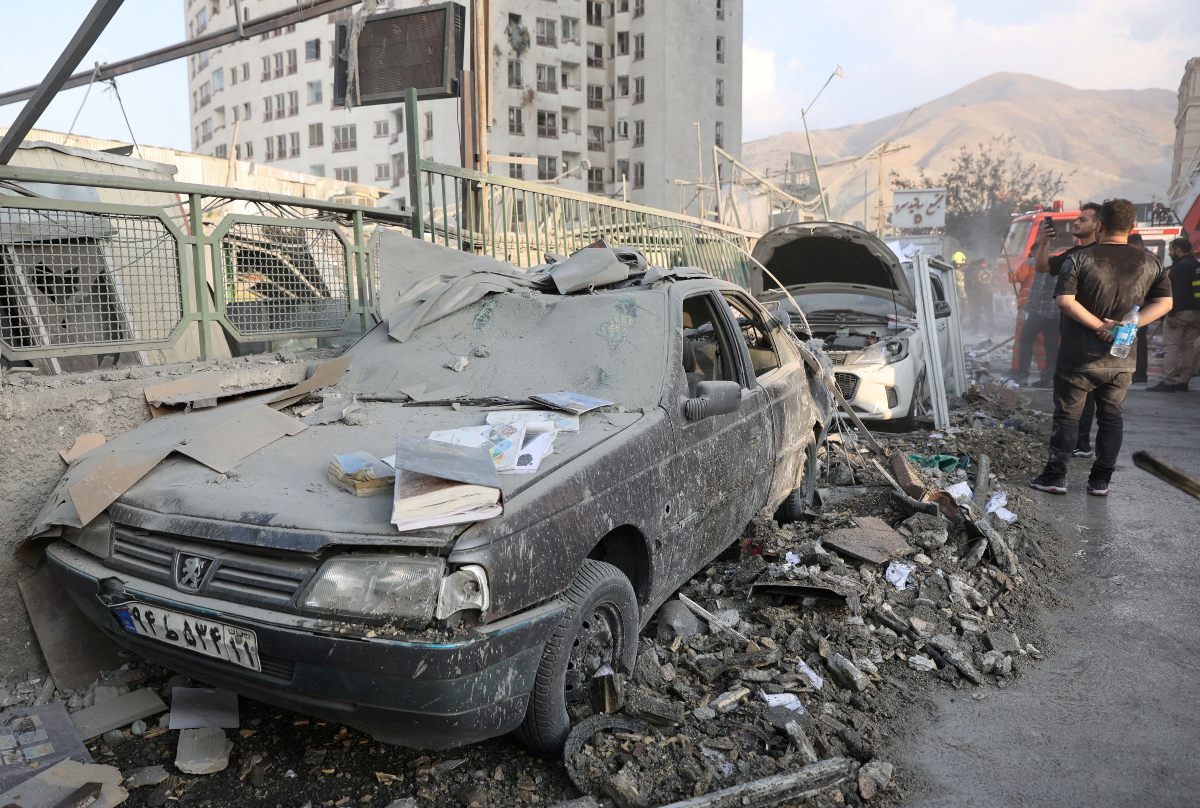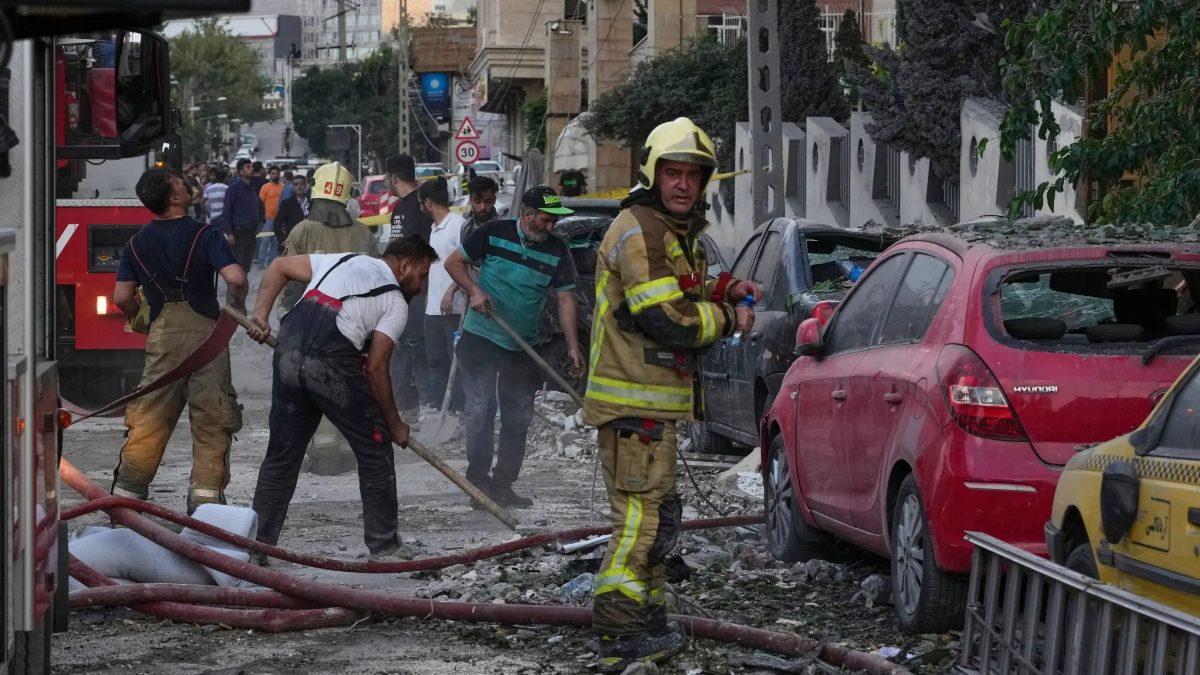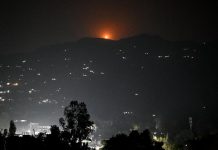Breaking: Israel Conducts New Airstrikes Inside Iran as Conflict Escalates
In a major escalation of hostilities, Israel launched a series of precision airstrikes on Iranian military and nuclear facilities early Friday, marking the third direct attack on Iranian soil this year.
The Israel strikes come amid heightened tensions following Iran’s alleged sabotage of an Israeli commercial vessel in the Red Sea earlier this week.
Latest Developments on Israel Strikes Iran (June 13, 2025)

-
Targets Hit: Israeli forces struck Revolutionary Guard (IRGC) bases in Isfahan and a suspected underground nuclear facility near Natanz.
-
Iran’s Response: Tehran claims “limited damage” but vows “crushing retaliation.” Air defenses were activated in multiple cities.
-
Casualties: Unconfirmed reports suggest at least 12 IRGC personnel killed.
-
Global Alarm: The UN Security Council convenes an emergency session, while oil prices surge 4% on supply fears.
Why Now? Escalating Shadow War Turns Hot
The attack follows months of proxy clashes between Israel and Iran, including:
-
June 10, 2025: Iran-linked Houthis attack Israeli-linked tanker near Yemen.
-
May 2025: Mossad assassinated Iranian nuclear scientist in Tehran.
-
April 2025: Israel bombs Hezbollah arms depot in Syria.
Strategic Objectives Behind Israel’s Strike
According to leading regional security experts, Israel’s latest strike appears designed to achieve three critical goals.
Dr. Emily B. Landau of the Institute for National Security Studies (INSS) notes the operation likely sought to degrade Iran’s nuclear progress, specifically targeting facilities that could accelerate uranium enrichment toward weapons-grade levels. General (Ret.)
Amos Yadlin, former head of Israeli military intelligence, emphasizes the parallel aim to deter IRGC proxy attacks against Israeli assets overseas, citing recent Houthi and Hezbollah operations as red lines.
Meanwhile, Dr. Sanam Vakil (Chatham House) highlights the geopolitical calculus: by escalating pressure on Iran’s infrastructure, Israel forces global powers—particularly the U.S. and EU—to reconsider stalled sanctions regimes. “This isn’t just about retaliation; it’s about changing the diplomatic equation,” Vakil said.
Iran’s Next Move: Limited Strike or Full War?
Iran faces a dilemma:
-
Option 1: Retaliate via proxies (Hezbollah, Houthis) to avoid direct war.
-
Option 2: Launch missiles at Israel, risking U.S. intervention.
-
Option 3: Accept the hit and regroup—but risks looking weak domestically.
Latest Intel: U.S. satellites detect unusual missile movements in western Iran.
Global Reactions on Israel Iran Conflict
-
U.S.: President Harris warns “all options on the table” but urges de-escalation.
-
Russia & China: Blame Israel for “reckless aggression” at the UN.
-
EU: Divisions emerge—France/Germany call for restraint, Poland backs Israel.
-
Saudi Arabia & UAE: Silent publicly but privately boost air defenses.
Market & Security Impact
-
Oil: Brent crude hits $98/barrel—highest since 2022.
-
Flights: Emirates suspends Tel Aviv routes; FAA warns airlines over Persian Gulf.
-
Military Alerts: U.S. sends additional warships to the Red Sea.
What’s Next?
-
48-Hour Window: Will Iran strike back before weekend?
-
Nuclear Fallout: If Natanz was hit, will Iran expel IAEA inspectors?
-
Proxy War Expansion: Hezbollah could open second front from Lebanon.
Expert Take
“This is the most dangerous moment since 2020,” says Dr. Ali Vaez, Crisis Group. Both sides are in uncharted territory—one miscalculation could ignite the region.
Live Updates (Refresh for Latest)
-
14:00 GMT: Unconfirmed explosions near Baghdad (Iran-backed militia base?).
-
13:30 GMT: Netanyahu to address nation at 19:00 local time.
-
12:45 GMT: IAEA chief en route to Tehran for emergency talks.
Why This Matters

The Israel-Iran conflict has now moved beyond shadow warfare into direct state-on-state strikes. With Iran closer than ever to nuclear breakout and Israel unwilling to tolerate it, the risk of a regional war is at its highest in years.
Follow WorldNewsViews.com for real-time updates.
Read Also:
- Why did Israel attack Iran?
- Iran response to Israel attack
- US role in Israel-Iran conflict











